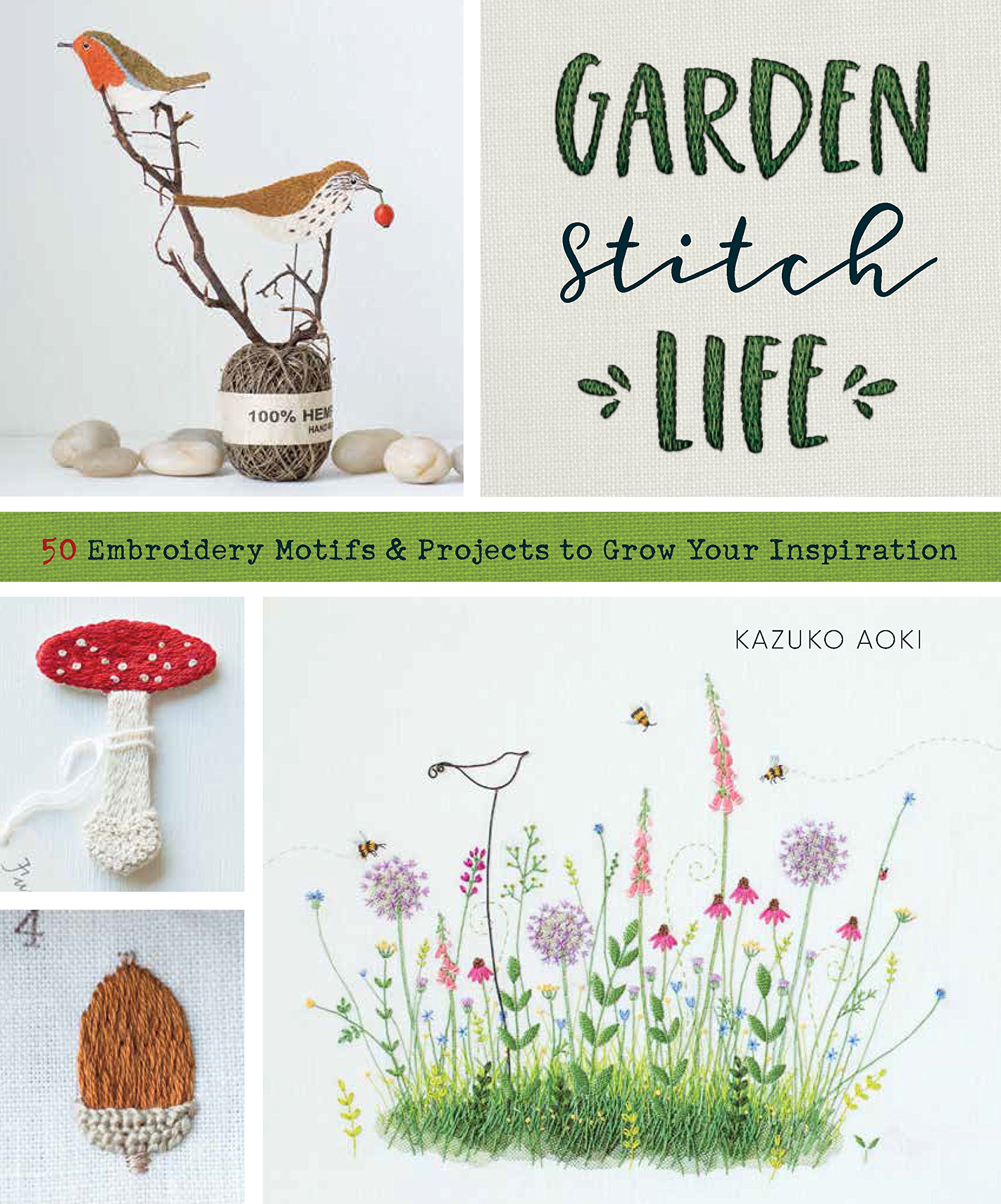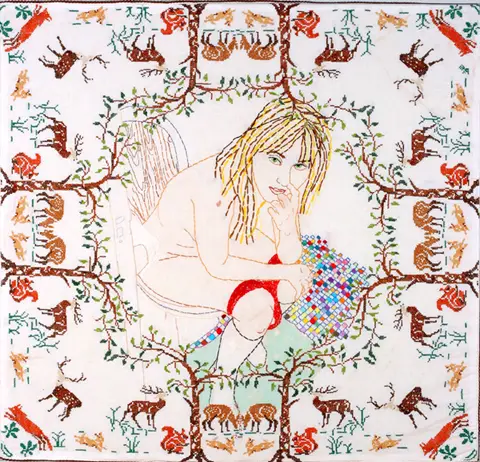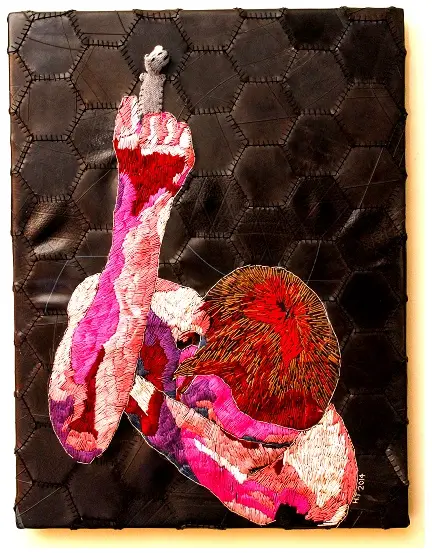Garden Stitch Life: 50 Embroidery Motifs & Projects to Grow Your Inspiration by Kazuko Aoki
Published by World Book Media
Introduction
In Garden Stitch Life , embroidery artist Kazuko Aoki invites you into her enchanting world of garden-themed embroidery. She allows us up close and personal, revealing her creative secrets and processes. There is the ‘from sketch to stitch’ approach, showcasing how we can use inspiration around us via the natural world to inspire our creative processes. Additionally we see more personal sources of inspiration, found in the every day and even our further away – from our napkins to our tea times to our travels…this author has been excited by it all. Templates are included for all projects.
Projects include samplers, collages, patches, bags, table linens, and more!
About The Author
Kazuko Aoki is a popular Japanese embroidery artist who draws inspiration from her garden and the wildlife that frequently visits there. After attending art school in Japan, Kazuko Aoki studied textiles in Sweden. She is the author of multiple embroidery books.
Who Is This Book Aimed At?
Those with an interest in the finer details of embroidery, teetering on the traditional, whilst holding onto the current via using personal ongoing inspiration as fuel. Stitches are explained so it is not too complex to achieve. As this book is written by a Japanese artist, we find that there is a particular attention to detail, fine embroidery at its best. This may put off those with little or no experience, yet it should not be a negative as we can all learn!
Content
There are three sections, classed as parts, each taking a different source of inspiration; nature, the everyday and travel.
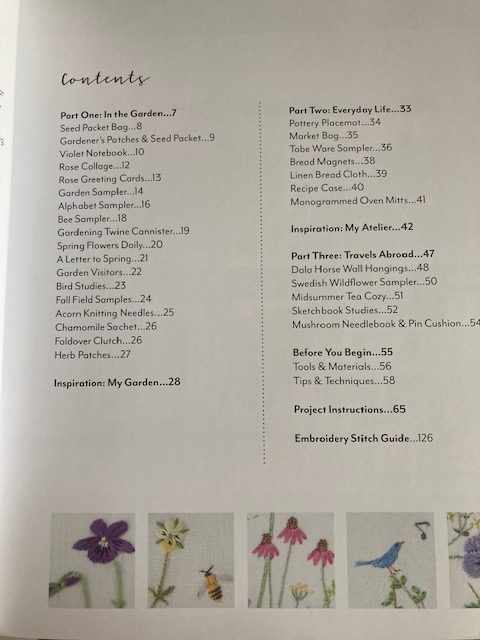
There are instructions given for every project, as well as paper templates….
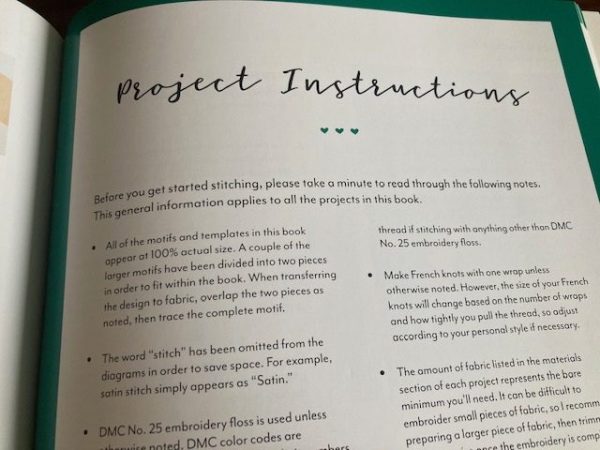
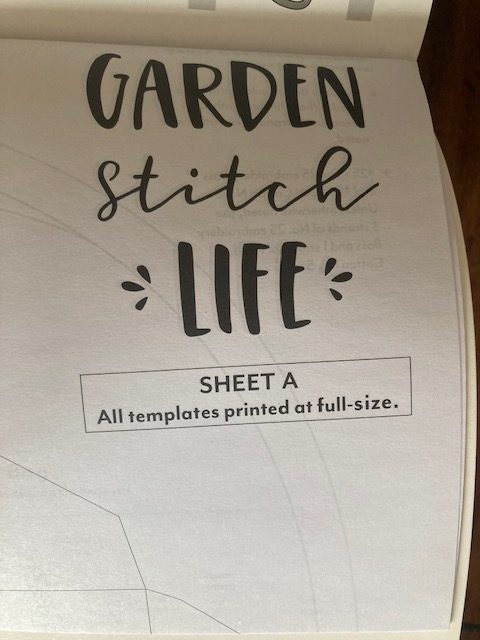
For those who need a point of reference in order to complete the various projects, there is a stitch guide, which really helps.
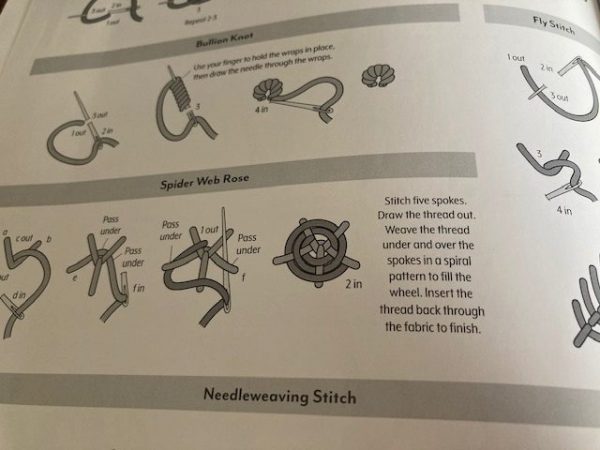
Each project has motifs, from birds to dinner plates. You will note that there are clear instructions for every one, with guidance given on stitch types and colour use.
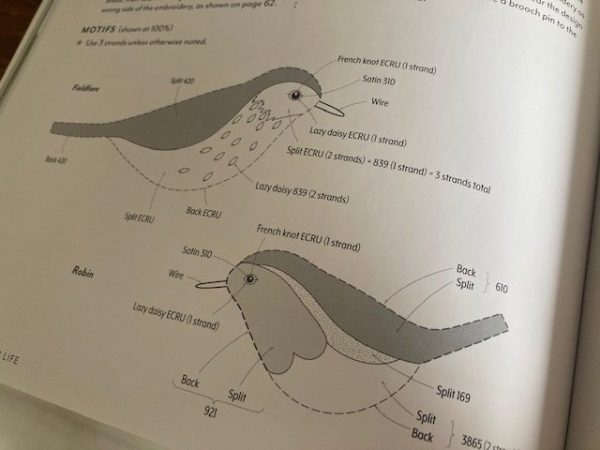
Some techniques may be lesser known to us. The author has provided photographed illustrations in a step-by-step manner on how each one works – priceless tutorials.
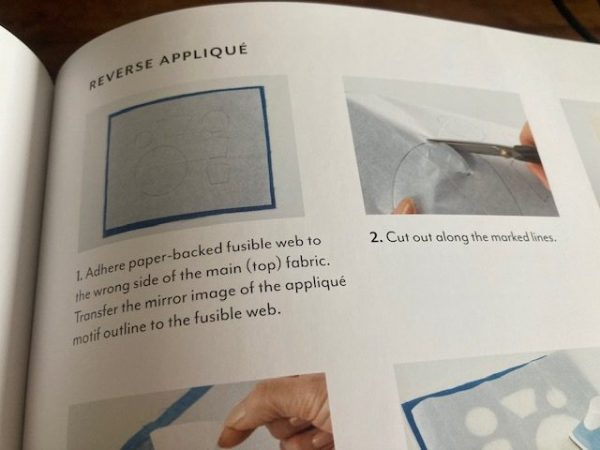
The main thing you will find about this book is its set up – the first half is what could be considered as a ‘look book’, to draw us in via sumptuous illustrations and journalistic dialogue. We enjoyed this method of presentation as it is less formal. This publication is certainly not a cold stitch bible.
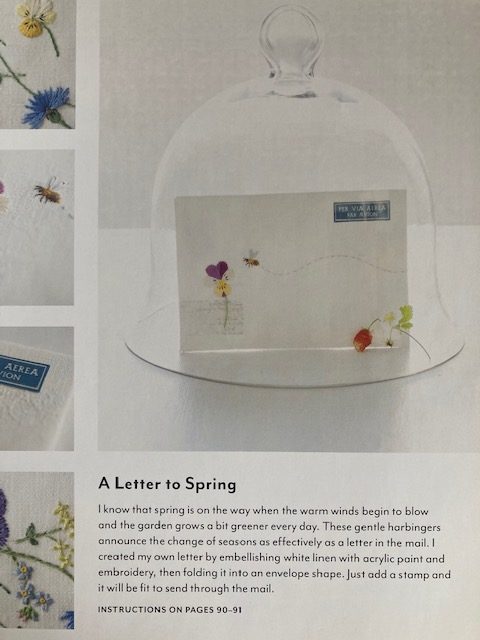
Note as in the image above, the instructions for each project are in the second half of the book, not connected straight after the image. This gives the look book or what we could describe as a catalogue view – full of things we will want to have a go of, then later as you see in the image above, the instructions on how to achieve them are given.
Photography
The way this book has been displayed and presented is sublime, here are a few examples…..
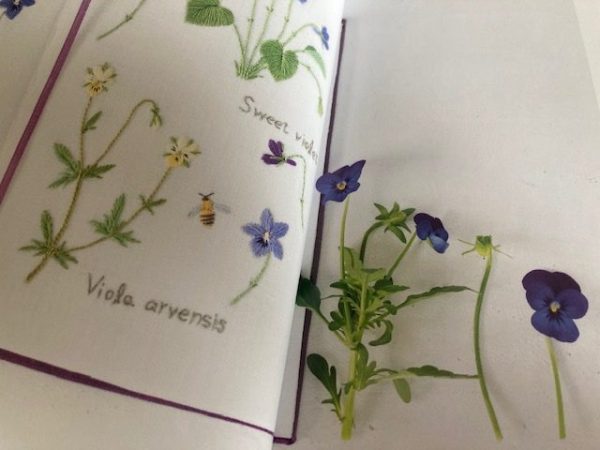
Unusual projects are mixed with those more expected. Take the example below….would we have thought about making a jar to store garden twine? Why make it beautiful? The author here encourages us to make the every day beautiful, or to see the beautiful in the everyday, the mundane items such as, yes garden twine, which most of us see only as a practical item.
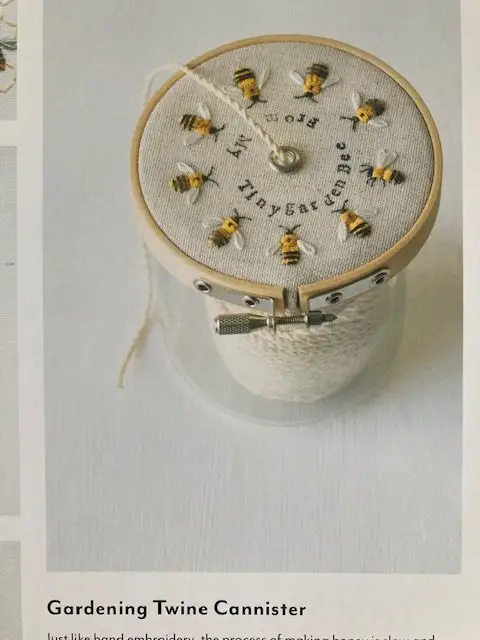
Then there are the expected projects, such as cards to embroider. yes we could make them personal to us, maybe using our own gardens as inspiration. What do we have fond memories of?
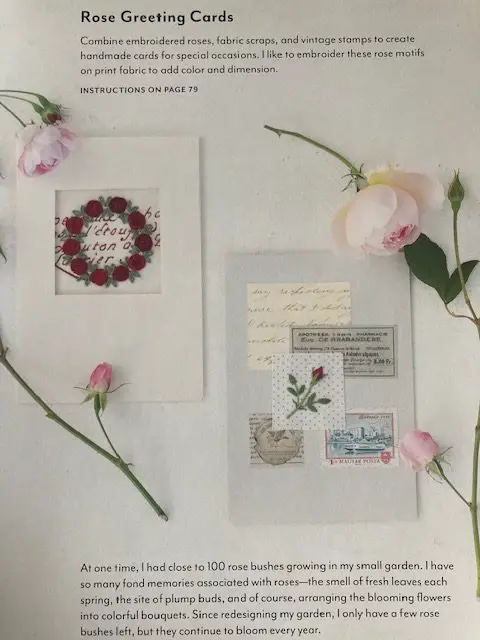
What Makes The Book Special?
We loved the more unusual, yet usual sources of inspiration. She makes the mundane things, items we may just take for granted seem more special and worth taking note of. A market bag or a napkin, items seen as simply required not something to love, have been showcased here. The minimalistic embroidery style makes for an achievable project…
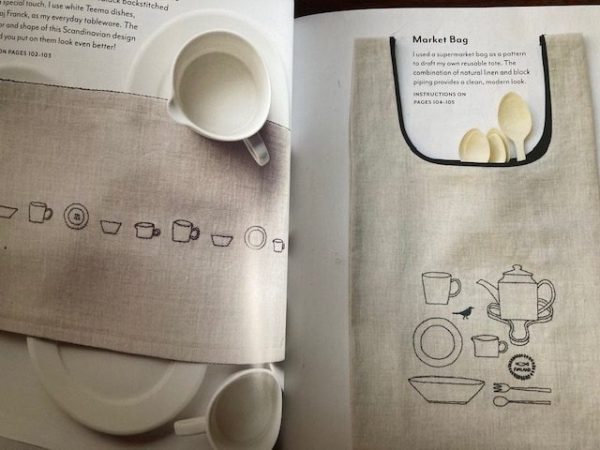
There are a few pages near the middle of the publication where the author allows us deeper into her personal life, with imagery of her own garden. This leaves us considering what we ourselves may find around us. Even if we don’t have a garden, what do we have around us? A favourite walk or park?
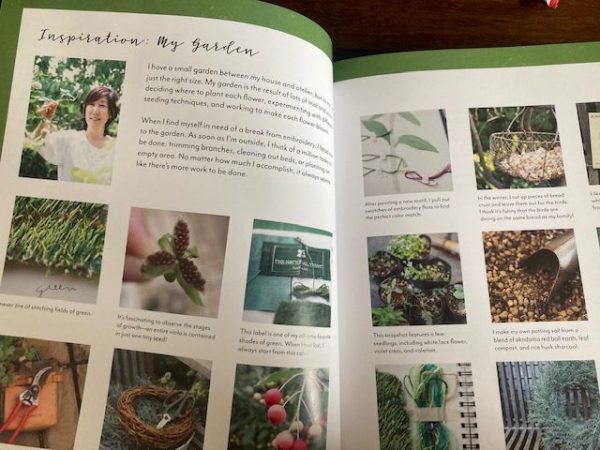
There is a definite diary feel to this book, with illustrations in a watercolour style almost becoming plans for the future embroidery work. This is a lovely element we could all have a little go of.
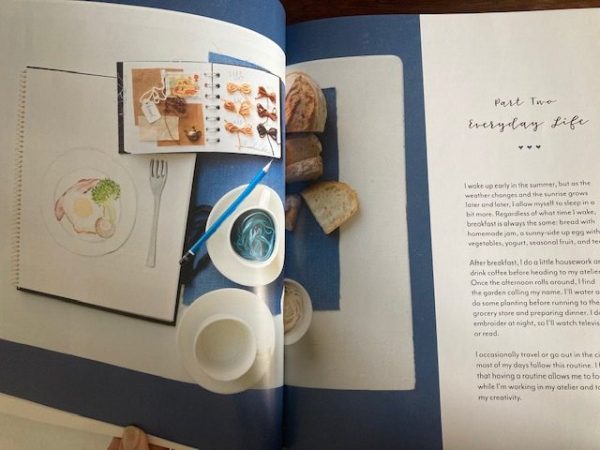
Anything Wrong With The Book?
This book, with its fifty embroidery motifs and projects should have enough to interest all in some way. It is a paperback book, yet this does not downgrade its quality.
Conclusion
Get your copy from BookStore and support independent bookshops through this link!

